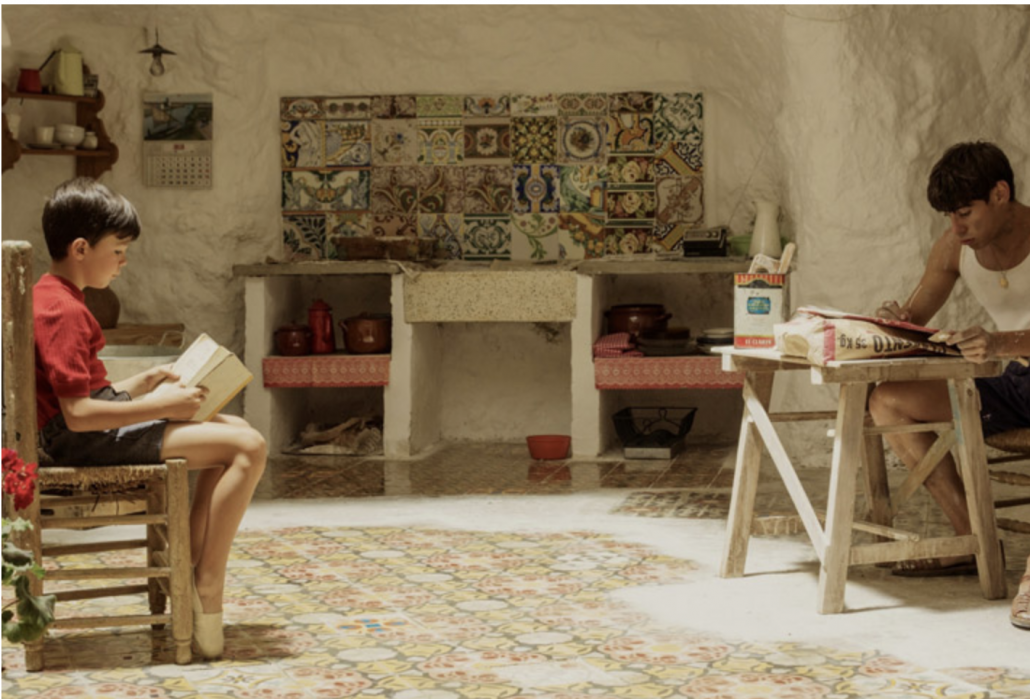‘Pain and Glory’ explores sexuality, addiction and trauma

What happens when an artist feels like they’ve hit their peak? When nothing they make can ever top their magnum opus? “Pain and Glory” is the manifestation of this feeling, and it captures it in the most honest way possible.
Loosely based on the life of Pedro Almodóvar — the director of “Volver” and “Julieta” — “Pain and Glory” follows the life of Salvador Mallo (played by Antonio Banderas) as an aging director going through artist’s block and reminiscing about the past. Set in Madrid, the film delves into the journey of an artist’s physical and mental decline and, in doing so, is nothing short of a creative triumph.
The film was screened at the School of Cinematic Arts’ Ray Stark Family Theatre Tuesday night in front of a packed house.
For someone who has never seen an Almodóvar film before, the structure can be confusing at first. The film goes back and forth between the present, Mallo’s early childhood and his days with his mother in the last stages of her life. The first half of the film is especially complex, but this in no way should discourage moviegoers.
As the film unravels, each piece begins to connect, with the narrative intentionally flowing like the inside of Mallo’s mind. The audience directly experiences his memories and the emotions associated with them. When Mallo reminisces, the audience shares in his bittersweet nostalgia. When he cries, the audience aches with him.
Banderas’ performance as the witty, washed up heroin addict and struggling director is fantastically subtle, authentic and incredibly raw. In an interview at the Toronto International Film Festival, the actor talked about how the emotions triggered from his heart attack two and a half years ago greatly influenced his performance in this film. Almodóvar was able to see how the attack affected him and asked Banderas to channel those same emotions into Mallo’s character. The result is a standout performance.
“Without filmmaking, my life is meaningless,’’ Mallo said in the movie.
With little left in his life and seemingly no films left to make, this statement rings true. As the film continues to reassert, however, it is the people who have come in and out of his life that have given Mallo purpose as well. “Pain and Glory” isn’t just a story about the artists’ struggle; it’s the story of a difficult yet vibrant childhood, intense heartbreak and the complicated relationship between mother and son. All relationships in this movie are fleshed out and nuanced, especially the dialogue written between a much older Jacinta and Salvador.
Aside from Banderas’ performance, the score is exceptional. Three-time Academy Award nominee and recipient of the Cannes Soundtrack Award at the 2019 Cannes Film Festival Alberto Iglesias elevates the movie with the score, especially with scenes of Mallo as a child. His work is masterful. Each piece perfectly encapsulates the complexity of emotions Almodovór conveys in each scene. The score shifts genres with the different stages of Mallo’s life, with music in the scenes of his later life incorporating electronic elements as well. The score is innovative, beautiful and enriches audiences with emotions and sentiment.
Almodóvar’s film also explores sexuality.
“I don’t really consider myself or want to be the pioneer of anything,’’ Almodovar said in a recent interview with Entertainment Weekly. “But what I take very seriously is to be able to portray the very different gamuts of sexuality that exist for all kinds of human beings and to represent that as honestly as possible. And not from the lens of activism, but from the position of being true to life.’’
The intimate portrayal of LGBTQ+ characters in a formerly conservative Spain and allowing for nuanced, multidimensional and honest representation of these individuals is something Almodóvar not only strives for but succeeds in. “Pain and Glory” brings to light not just the story of the first experience of infatuation, but also gets audiences invested in a relationship between older men, something not often seen in LGBTQ+ cinema, according to Almodóvar.
“I don’t like autofiction,’’ Mallo’s mother Jacinta scoffs in the movie, almost representing Almodóvar’s voice as the hesitant filmmaker, someone afraid to put aspects of their life on film.
While writing about personal experiences can allow for greater opportunities for people to relate, the doors opened for interpretation on one’s life may be an unintended consequence. The balance is difficult to navigate. It truly pays off, however, with Almodóvar proving that being intensely vulnerable can make for profound content.

